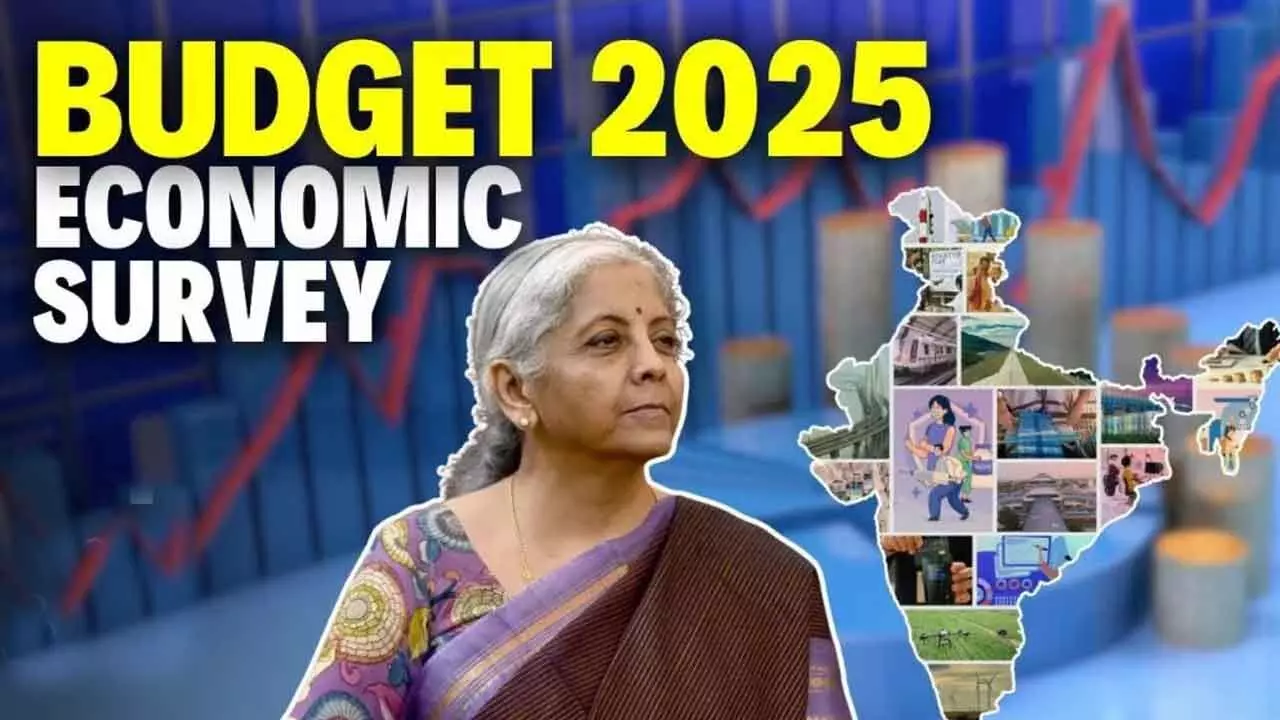Economic Survey Makes Realistic Projections, Sensible Recommendations
Economic Survey Makes Realistic Projections, Sensible Recommendations

The Economic Survey 2024-25, which Union Finance Minister Nirmala Sitharaman tabled in the Parliament on Friday, has made a realistic projection of growth for the next fiscal nu putting it between 6.3 and 6.8 per cent. It has also highlighted an important fact: the annual decadal growth rate between 2014-15 and 2023-24 (excluding the Covid years of 2020-21 and 2021-22) was slightly more than 6.4 per cent GDP rise in 2024-25. Sluggish manufacturing and slower corporate investments brought down the growth rate.
The Survey, though, is bullish on manufacturing, saying that it “shows positive expectations”. Navigating global headwinds will require strategic and prudent policy management and reinforcing the domestic fundamentals. Against the backdrop of a decline in the current fiscal, this makes for an appropriate assessment. The government’s frustration over the lack of adequate private investment could be felt in the chapter ‘Investment and Infrastructure. “Public sector efforts cannot fully meet these requirements. There are binding budget constraints to the different tiers of government. Private participation should accelerate in many critical infrastructure sectors in many ways,” it mentions.
The solution the survey offers sounds clichéd, “It needs coordinated action of all stakeholders —governments at different tiers, financial market players, project management experts and planners, and the private sector.” All this is well-documented; perhaps it has been reiterated to remind the political class how important this is. Similarly, to boost manufacturing, the survey favours “lasting, synchronized efforts of all tiers of governments, the private sector, the skilling eco-system, academia and R&D institutions, and financial stakeholders to enable India realize its ambition as a manufacturing powerhouse.”
This too is no revelation; what is needed is political will and executing acumen to transform ambitions into reality. This transformation is predicated upon faster economic reforms and deregulation. It makes an interesting observation: “In many cases, current regulations are gold-plated, i.e. they are set with an inflated assumption of regulatory capacity and the capacity of regulated entities to comply. There is some scope for making many of the current regulations less restrictive, in line with comparable standards recommended by international bodies.”
On what the governments should focus on, it says: “Deregulation is more critical for MSME growth than large enterprises. Compliance costs in terms of time and financial resources are non-trivial for MSMEs. Large enterprises usually find a way around compliance.” Smaller enterprises are constrained in terms of management and financial resources. In the last few years, the policy has recognized the need to drive comprehensive process and governance reforms. The initial phase aimed at reducing compliance burdens, streamlining and digitizing systems, and offering sector-specific incentives.
The Union government has advanced deregulation by simplifying taxation, rationalizing labour laws, and decriminalizing business regulations. For instance, reforms in forest regulations removed barriers that previously restricted enterprises from constructing basic infrastructure like passageways to main roads. States have also contributed by minimizing compliance requirements, digitizing processes, and collaborating with businesses to address regulatory challenges. By engaging directly with enterprises, they have identified pain points and reduced the costs associated with regulations. In this context, the Survey said that Ease of Doing Business 2.0 should be a state government-led initiative focused on fixing the root causes behind the unease of doing business. All states must take this recommendation seriously.

